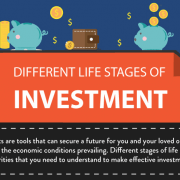20 Ways to Push The Reset Button and Embrace Lifestyle Deflation Without Deprivation

As you progressed in your career, perhaps you upgraded different parts of your life. You worked hard, and every dollar you earned was a new opportunity to support yourself, buy something fun, or have exciting experiences with new people. As you made more money, you probably bought more things. Maybe you upgraded from an apartment to a house. Or from an inexpensive area to the center of a city. Or from a cheap used car to buying your dream car.
How far down the lifestyle inflation path you go depends on when you pause to reflect. Some people never do and end up with piles of debt, cluttered houses, and unfulfilled dreams. As time goes on, this life becomes your new baseline. The cost to support it climbs ever higher, and it’s hard to figure out what you could cut out.
The pandemic dramatically and immediately changed the speed of our treadmill. You can choose to permanently slow it down and live a more simple life now and in the future. Let’s look at 20 ways to nudge your mindset in a new direction.
Find What “Enough” Means To You
For everything in life – from money to possessions to relationships – there’s a sweet spot. Too many relationships, and you’ll be stretched too thin. Too few, and you’ll yearn for more connection to the world (ask 2020). The trick is finding the sweet spot where you, personally, have enough.
Many of us don’t think about how much “enough” truly is. If you never evaluate what enough means to you, how will you ever know when you’re there? You might even have reached enough already but don’t even know it. You could slow down the treadmill while maintaining the same level of happiness you have today. The concept of enough spans many aspects of your life.
1. Enough Relationships
Does that mean 50 friends or five close friends? A professional inner circle of 5 people or 5,000 Instagram followers? A group that goes to brunch every week? What do enough relationships look like to you? If you spread yourself too thin socially, you won’t have enough time for the most important people in your life.
2. Enough Money
With so many Americans struggling financially, it’s hard to pause and think about what enough money would mean to you. Is it to pay all bills every month? Pay off all your debt? To pay for higher education? To have money left over for the next generation? Is it enough when you can become financially independent and retire early? What “enough” means will vary from person to person.
3. Enough Novelty
Shopping and buying are so convenient today that it’s easy to get that “high” from buying the newest gadget, exciting toy, or clearance item. If you buy too much, it might be a coping mechanism. Too few, you’re starting to feel deprived. If you like variety and often buy new things, but want to live a minimalist lifestyle, borrow things instead of buying them. Today’s libraries not only offer books, movies, and music but a wide range of items like video games, board games, baking pans, and kids building kits.
4. Enough Experiences
Traveling and exploring can be life-changing and is a priority for a lot of people. You can still cut back the amount of money and time you’re spending without feeling deprived. Whether you cut back on the number of vacations you take a year or start to look for travel deals, focus on your bucket list activities vs. saying yes to every opportunity that comes along. When exploring your local area, think about the places you would want to see before moving or free activities like state parks.
5. Enough Fame, Prestige, or Power
Many people strive to be revered. Do you want to be seen as an expert? Looked up to? Asked for your advice? Ask yourself what enough of each of these looks like for you as accomplishing them takes time.
In Sweden, the idea of having enough is so engrained it has its own word – lagom. Lagom doesn’t have an exact translation into English, but it roughly means just the right amount. Lagom isn’t about deprivation. It’s about finding balance.
Take the Route to Slow Minimalism
A few years ago, you couldn’t turn on the news without hearing about Marie Kondo. Her book The Life-Changing Magic of Tidying Up (2011) and her Netflix series started a new conversation about consumerism and minimalism in America.
The process of building a life with less stuff can take a long time, especially if we want the change to be permanent. The value of slow minimalism is exponential growth. Your environment won’t change overnight, but one day you’ll be able to look back and see how far you’ve come.
6. Work on Minimalism Slowly
This concept of slow minimalism helped keep me from feeling overwhelmed while continually improving my surroundings. Marie Kondo’s advice to sort through everything within a weekend wasn’t an option for me. I’d tackle a different room each month – donating or removing what didn’t spark joy.
7. Sell What You Don’t Need
When reducing clutter, you’ll find things around your house that you never used or are in excellent condition. There are lots of places you can sell these items online. You might want to travel more or have more spending money; the proceeds could help you meet your goals.
8. Sustain Your Minimalism
You’ve worked hard to clear unwanted items from your house. Resist the urge to fill your space back up again with stuff. Not only can you bust your budget, but you’re back at square one with more items that you need or really want.
9. A Minimalized Home Requires Less Square Feet
Before you move to a more expensive, larger, home commit to decluttering your entire space. During the first passes, I focus not on beauty but on making spaces functional again. You might find that your current living space does have room for a home office or a play area, and the size of your existing home can actually work for you.
10. A Minimalized Home Means Less Home Improvement Projects
Similarly, before you start an expensive home improvement project, get rid of all the stuff you don’t use or need. With fewer clothes, you don’t need to build a walk-in closet, and with fewer kitchen items, you no longer need an expensive kitchen remodel.
In my case, minor improvements let me reach a point of “enough” for each space without spending $30,000 on a complete kitchen remodel.
Reconsider Your Big Three Expenses
Your largest three expenses of housing, transportation, and food are areas where changes can significantly impact your budget and, therefore, your overall lifestyle. One of the reasons these three spending areas make up ⅔ of America’s budgets is that these costs are recurring. A large rent or mortgage payment, as well as a car loan bill, comes every month. More often than not, a comfortable lifestyle depends on how efficiently you spend your dollars in these “Big Three” areas.
When you think about your big three expenses, you may have made decisions in the past that you wouldn’t make again. Whether these were mistakes or just changes in your preferences, accept that you’ve changed and are more focused on spending money on the items that matter the most to you.
11.Housing Expenses
After I graduated college, I immediately followed the advice I kept hearing “renting is throwing money away.” I did the “financially responsible” thing and bought a house. Unfortunately, I bought a house that was about 53% of my monthly income, and I had overextended myself.
I got married, eventually sold the house, and embraced apartment living. It felt like a weight lifted off my shoulders, and it felt refreshing to have a new start.
12. Transportation Expenses
In a typical year (one where people go places), the average American spends 14% of their overall budget, or $9,004, on transportation. It’s typically the second largest spending category between car payments, gas, and other monthly commuting expenses like public transportation. If you’re leasing a car currently, consider buying a less expensive used car in the future. Or if you’ll be working at home permanently, could your family own one car instead of two? If a fancy car isn’t important to you, you could divert money to other priorities like vacations or college savings.
13. Food Expenses
On average, Americans spend 10% of their income or $6600 a year on food. While most of this money is spent on cooking at home, it does include takeout, delivery, and eating at restaurants. Many people order in out of habit or hectic schedules. With a little planning, you can stockpile your freezer with meals for busy days or meal prep for your week by cooking multiple large meals on the weekend. You can save money for special occasion dinners or use the extra cash to meet other more important goals.
Focus on What You Can Change
Change is complicated. It’s both the cause of most of our stress and most of our comfort. When we initiate that change, it can be unsettling at first, but it levels out. When change happens to us, it can be overwhelming. Changes we’re in control over feel much more solid: like we’re building the life we want one decision at a time.
14. Change What You Spend Your Money On
While you might not be able to sell your house right now if you’ve overextended yourself, focus on the items you can change. Set a goal to limit your takeout orders or cancel your cable subscription. Challenge yourself to no-spend weekends. Instead of vacations that involve expensive flights, try regional road trips or even camping.
15. Change to a Gratitude Mindset
Even deprivation is a feeling you’re in control over. Two people who were showed the same lifestyle could see either deprivation or abundance. As Oprah said, “If you look at what you have in life, you’ll always have more. If you look at what you don’t have in life, you’ll never have enough.” Practicing gratitude is a proven way to improve one’s overall well-being. And it’s free!
16. Change How You Think About Money
Even before the pandemic, three out of four Americans reported being stressed over finances, with half reporting that they feel their finances control their lives rather than the other way around. If you’re unemployed right now, it is natural to be stressed about your situation. But if you’re employed and feel uneasy about money topics in general, these feelings are in your control. Remember that money is a tool you use to create the life you want.
Decide What You Want To Focus On
After thinking about all these different areas, your priorities start to take shape. These focus areas will be the compass for you to scale back your lifestyle but not feel deprived. When you cut out the things that don’t have value to you, it won’t feel like deprivation.
17. Focus on What’s Important to You
When optimizing your budget, it’s easy to go overboard. Months with higher spending are often followed by months of austerity. It’s this kind of yo-yo budgeting that I see all the time by people who start to optimize their finances.
People that have clear goals they are actively working towards are around ten times more likely to succeed. What I’d encourage you to do is this: make a list of 101 things you want to know, have, or do – a list of what to do with your life.
18. Focus on Goals for the Future
Let your mind run wild when creating this list. Include places you want to travel to, goals you want to accomplish like buying your own house or getting an advanced degree, or career dreams. List out what you want to create in life and what you want to learn.
Creating this list won’t be easy! Write down what you really want, not just what you’d admit to friends. Be honest with yourself and take as much time as you need. If it takes a few days, that’s alright!
19. Focus on Balance
The next step is the critical part. When you think about your spending and creating priorities for this new lifestyle, keep your goals front and center. If you find yourself cutting expenses related to your priorities, take another look. If you can afford it, add back in expenses that bring you closer to your goals and dreams. Shoot for a life you’re in control of that balances your dreams and your budget.
20. Focuses Change Over Time
“Set it and forget it” may be a great advertising line, but it’s not great long-term advice. As the years and decades change, so do people’s priorities in life. What was important to you in your 20s as a recent college graduate most likely won’t be the same ten years later. Or what’s essential when you have a young family would be different than setting up your ideal lifestyle for retirement.
This article originally appeared on Your Money Geek and has been republished with permission.











